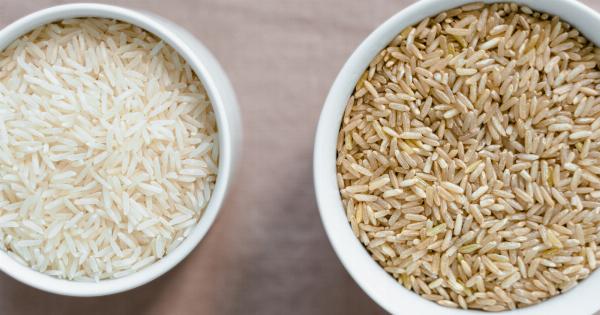Inflammatory bowel diseases (IBD) are chronic conditions characterized by inflammation in the digestive tract. The two primary types of IBD are Crohn’s disease and ulcerative colitis.
Both conditions can cause pain, discomfort, and a variety of other symptoms that can significantly impact a person’s quality of life.
The Importance of Diet in Managing IBD
While diet alone cannot cure or cause IBD, it plays a crucial role in managing symptoms and preventing flare-ups. Certain foods can aggravate inflammation and worsen the symptoms of IBD.
Avoiding these foods can help individuals with IBD maintain better control over their condition and experience fewer and less severe symptoms.
Foods to Avoid
1. Dairy Products:.
Dairy products such as milk, cheese, and butter can be problematic for individuals with IBD. These products contain lactose, a sugar that some people with IBD find difficult to digest.
Additionally, the fat content in dairy products can increase inflammation and worsen symptoms.
2. High-Fiber Foods:.
While fiber is generally considered essential for a healthy diet, people with IBD often struggle with digesting high-fiber foods. These foods include whole grains, nuts, seeds, and raw fruits and vegetables.
High-fiber foods can increase bowel movements and worsen diarrhea, a common symptom of IBD.
3. Fatty Foods:.
Foods high in trans fats and saturated fats can worsen inflammation and increase the risk of flare-ups in individuals with IBD. Avoid fried foods, fatty cuts of meat, and processed snacks that contain unhealthy fats.
4. Spicy Foods:.
Spices like chili peppers, curry, and hot sauces can irritate the digestive tract and trigger inflammation in people with IBD. It is advisable to avoid or limit the consumption of spicy foods to prevent discomfort and flare-ups.
5. Alcohol:.
Alcohol can act as a trigger for inflammation in the digestive tract. It is associated with an increased risk of flare-ups and can worsen symptoms such as abdominal pain and diarrhea in individuals with IBD.
6. Caffeine:.
Caffeine is a stimulant that can increase bowel movements and worsen diarrhea, which is a common symptom in people with IBD. Limit the intake of caffeine-containing beverages like coffee, tea, and energy drinks.
7. Carbonated Drinks:.
Carbonated beverages can cause gas and bloating, which can exacerbate discomfort and pain in individuals with IBD. Avoid soda, sparkling water, and other fizzy drinks.
8. Artificial Sweeteners:.
Artificial sweeteners such as aspartame, saccharin, and sucralose have been found to have a laxative effect and may increase the risk of diarrhea in individuals with IBD. Opt for natural sweeteners like honey or maple syrup instead.
9. Gluten:.
Gluten is a protein found in wheat, barley, and rye. Some individuals with IBD may have gluten intolerance or sensitivity, which can worsen symptoms. Avoid foods containing gluten and opt for gluten-free alternatives.
10. Processed Foods:.
Processed foods often contain additives, preservatives, and high levels of unhealthy fats. These can lead to inflammation and worsen symptoms in individuals with IBD. Choose fresh, whole foods whenever possible for a healthier diet.
Conclusion
Inflammatory bowel diseases can greatly impact an individual’s quality of life, but dietary choices can help manage symptoms and reduce the risk of flare-ups.
Avoiding trigger foods, such as dairy products, high-fiber foods, fatty foods, spicy foods, alcohol, caffeine, carbonated drinks, artificial sweeteners, gluten, and processed foods, can help individuals with IBD maintain better control over their condition. It is essential to work closely with a healthcare professional or dietitian to develop a personalized diet plan that best suits the individual’s needs.




























